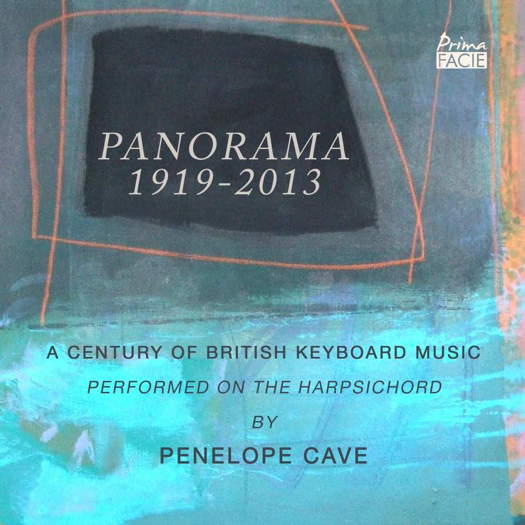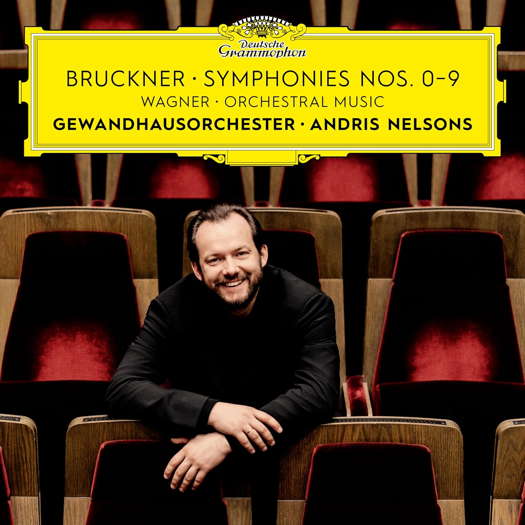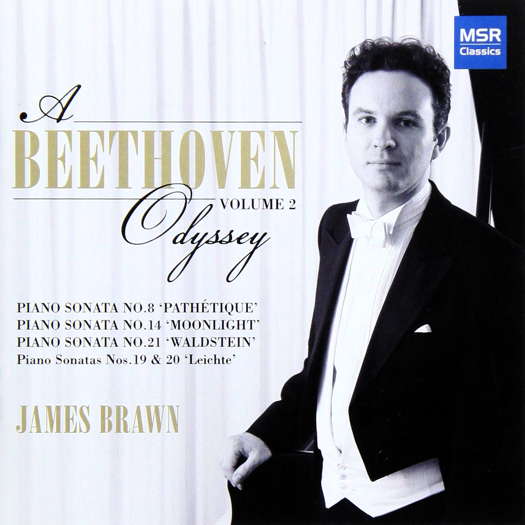 SPONSORED: CD Spotlight. A Fantastic Collection. Penelope Cave Panorama CD. Little-known harpsichord gems, strongly recommended by Alice McVeigh.
SPONSORED: CD Spotlight. A Fantastic Collection. Penelope Cave Panorama CD. Little-known harpsichord gems, strongly recommended by Alice McVeigh.
All sponsored features >>

Gorgeously Resplendent Playing
GERALD FENECH finds Andris Nelsons' recordings of Bruckner's symphonies simply outstanding
'... all the mystery and grandeur of these works are exposed in translucent music making.'
One of the greatest symphonists of all time, Anton Bruckner remains for many an enigma to which there is no concrete answer. This is what the renowned musicologist Deryck Cooke had to say about Bruckner's symphonic output:
Bruckner's symphonies offer a sense of the awe-inspiring, born of the naked wonder, fear and delight of elemental humanity, confronted by the mysterious beauty and power of nature and the vast riddle of the cosmos.
Listen — Bruckner: Finale (Symphony 'No 0' in D minor)
(486 4539 track 4, 5:06-5:55) ℗ 2023 Deutsche Grammophon :
Born in Ansfelden, Austria in 1824, the composer studied violin and organ from a young age, but his major works were all composed after the age of thirty-nine. After his father's death in 1837, he became a chorister at the monastery-school of St Florian. His family's poverty made a musical career impossible; instead, he trained as a schoolteacher.
Following positions in Windhaag and Kronstorf, he returned to St Florian where he taught from 1845 and was organist from 1848. In 1855 he became organist at Linz Cathedral, and later embarked on a five-year course in harmony and counterpoint with the Viennese pedagogue Simon Sechter. Later, he studied orchestration with Otto Kitzler, who in 1863 introduced him to Richard Wagner's music.
This experience drove Bruckner into a prodigious compositional period full of creative inspiration, and Wagner remained his musical idol until his death. Indeed, Bruckner dedicated his Third Symphony to Wagner, who praised the work no end.
Listen — Bruckner: Mehr langsam, Misterioso (Symphony No 3 in D minor)
(486 4539 track 18, 0:02-1:00) ℗ 2023 Deutsche Grammophon :
Moving to Vienna in 1868, Bruckner took up Sechter's old post at the conservatory, and during the next twenty-eight years he composed most of his greatest masterpieces, though for years he struggled to get his orchestral music performed, particularly after the 1877 premiere of the Third Symphony, which despite Wagner's praise, was a disastrous experience. Only after the 1884 premiere of the Seventh Symphony in Leipzig did he receive the acclaim he deserved.
Listen — Bruckner: Adagio (Symphony No 7 in E)
(486 4539 track 39, 0:01-0:52) ℗ 2023 Deutsche Grammophon :
He continued to compose and revise his works, sometimes heavily, due to the grave doubts he had on his own ability to write the music he had in his head. Indeed, several of his symphonies have more than one version, but whatever the case, the symphonies' massive structures have led them to be nicknamed 'Cathedrals of Sound.'
Bruckner died on 11 October 1896 from heart failure, and was appropriately buried in the crypt of his beloved St Florian. Bruckner's symphonies broke new ground, the sheer size and scope of each work combining the passion of Beethoven and the orchestral weight of Wagner. The musical language is darkly glowing, overwhelmingly beautiful, but also energetic and innovative. Indeed, many expert critics consider Bruckner's symphonies as a universe of immeasurable tonal expressive and metaphysical dimensions.
Listen — Bruckner: Finale (Symphony No 8 in C minor)
(486 4539 track 45, 0:00-1:00) ℗ 2023 Deutsche Grammophon :
This monumental cycle has been six years in the making but it was worth waiting for. Andris Nelsons is a Bruckner interpreter of the highest order, and the way he builds from the bottom up is truly second nature to him. The Leipzig Gewandhausorchester responds with some gorgeously resplendent playing where all the mystery and grandeur of these works are exposed in translucent music making.
Listen — Bruckner: Adagio (Symphony No 9 in D minor)
(486 4539 track 49, 26:30-27:26) ℗ 2023 Deutsche Grammophon :
This ten-CD box also includes several orchestral excerpts from Wagner's operas. An extra treat to partner Bruckner's orchestral cathedrals. Sound, notes and presentation are simply outstanding.
I urge you to celebrate the two-hundredth anniversary of Bruckner's birth next year by adding this superlative undertaking to your collection without further delay.
Copyright © 14 October 2023
Gerald Fenech,
Gzira, Malta




